How Diego Milito is helping to revolutionise Racing Club, along with Argentine football culture
Milito remained a huge supporter of Racing during his time in Europe and soon realised just how much was missing from his beloved childhood club, and the Argentine game in general
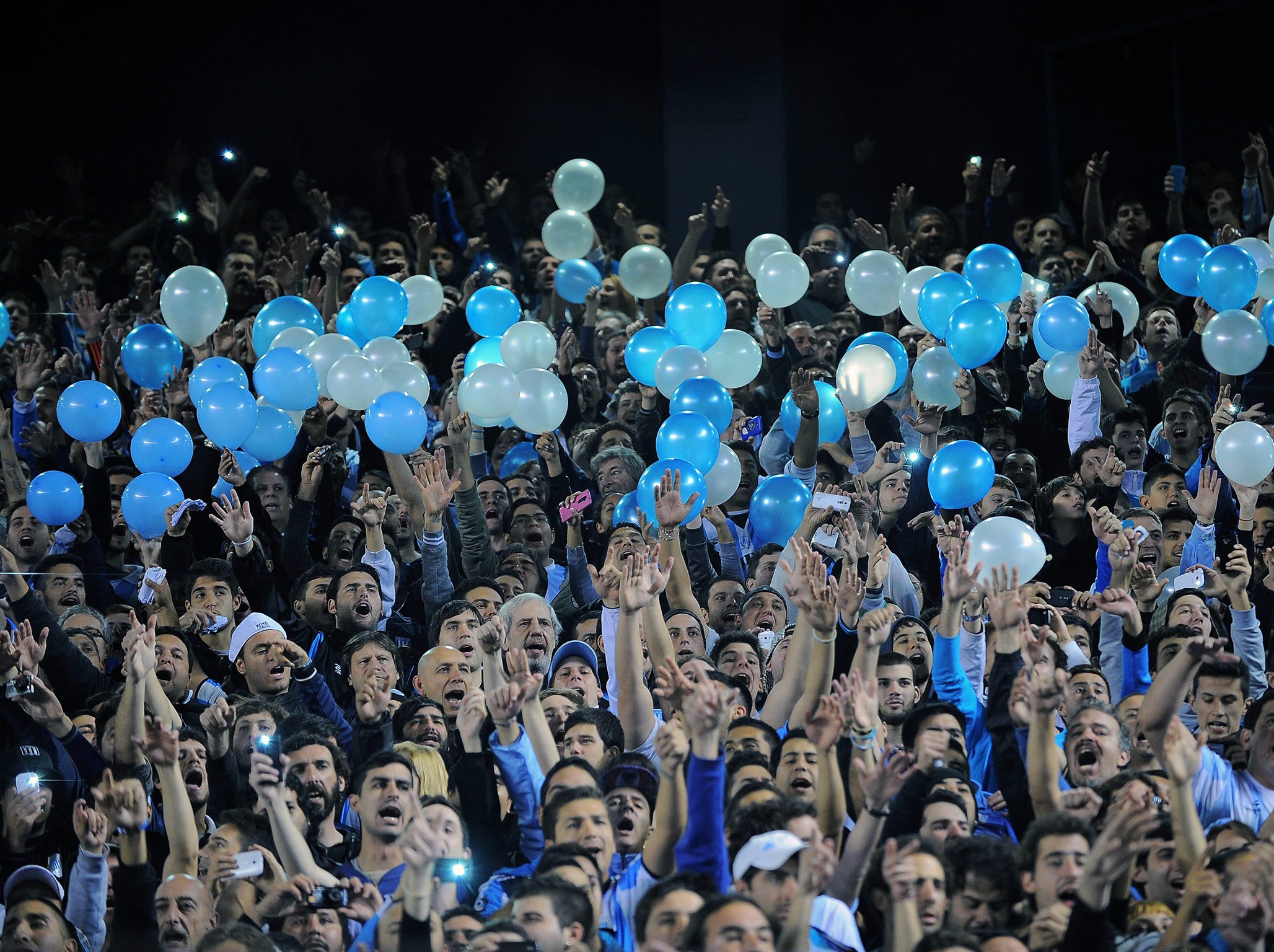
Your support helps us to tell the story
From reproductive rights to climate change to Big Tech, The Independent is on the ground when the story is developing. Whether it's investigating the financials of Elon Musk's pro-Trump PAC or producing our latest documentary, 'The A Word', which shines a light on the American women fighting for reproductive rights, we know how important it is to parse out the facts from the messaging.
At such a critical moment in US history, we need reporters on the ground. Your donation allows us to keep sending journalists to speak to both sides of the story.
The Independent is trusted by Americans across the entire political spectrum. And unlike many other quality news outlets, we choose not to lock Americans out of our reporting and analysis with paywalls. We believe quality journalism should be available to everyone, paid for by those who can afford it.
Your support makes all the difference.Even before Diego Milito scored the goals that won the 2010 Champions League final, thereby securing the treble for Inter Milan, he had a mission on his mind that meant even more to him.
The striker had always been keenly observant of how the clubs he played for work behind the scenes. He remained a huge supporter of Racing and from his time in Europe soon realised just how much was missing from his beloved childhood club, and the Argentine game in general.
It dawned on Milito how dysfunctional it all was, and how even the introduction of innovations considered standard in Europe could have striking effects in his home country.
The farrago around the postponed 2018 Copa Libertadores final distilled all this dysfunction into one, ultimate example.
By then, though, Milito was already setting an example of his own. The striker returned to Racing in 2014 and became a unique player in the club’s modern history, winning the league in the year of his return to sit alongside his 2001 triumph: the only man to ever win two national titles with the club. He was also poised to become a truly unique football figure in Argentinian football, too.
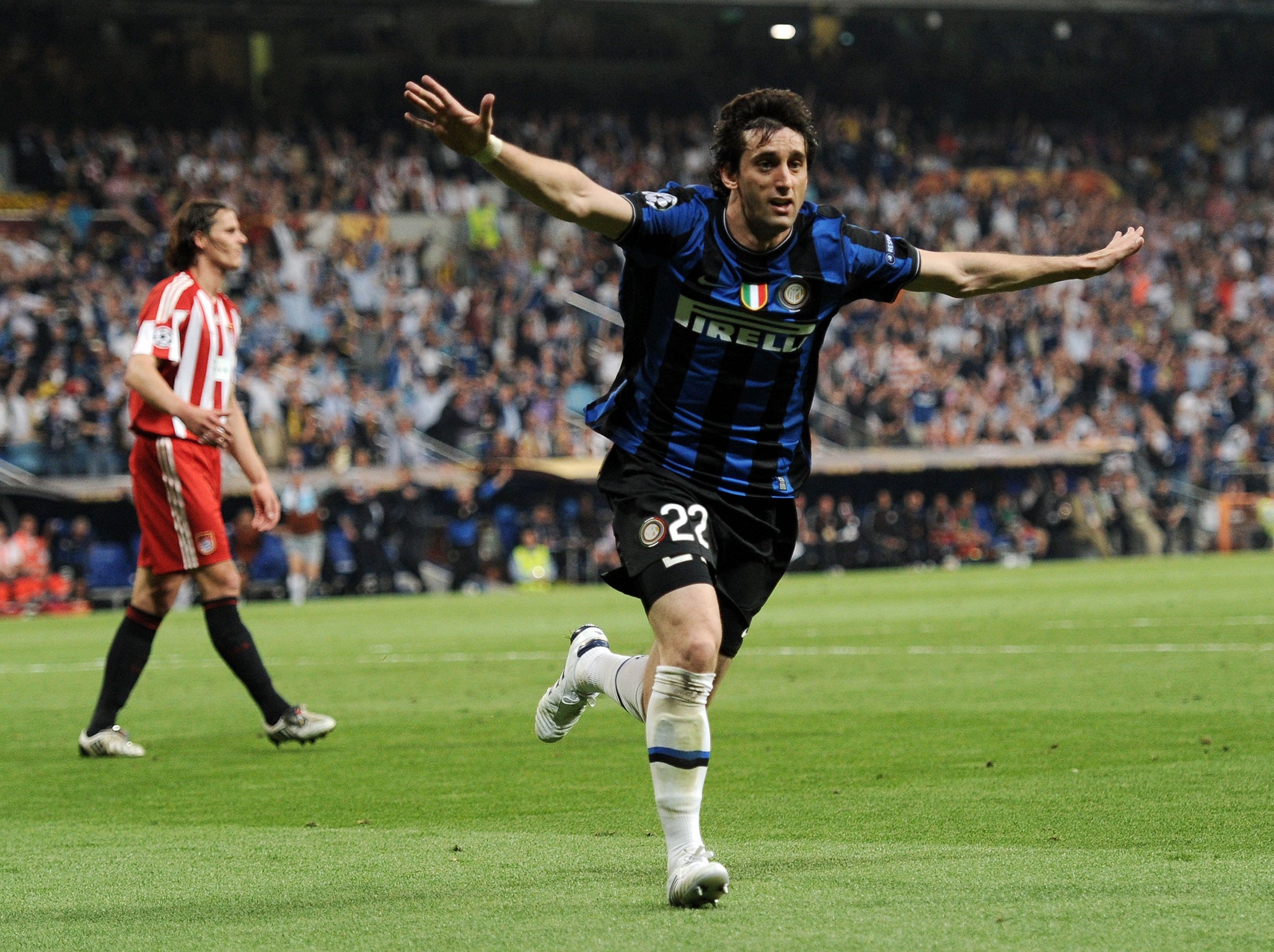
On retiring in 2016, Milito was made the club’s technical secretary, and consequently one of the few individuals with a job similar to a European-style director of football.
This was one of a few ways that Racing have marked themselves out as different – but that was just the start.
“His mission,” his forward-thinking assistant Diego Huerta explains, “was to make Racing a champion again.”
Milito is close to doing that now as the club sit on top of Argentina’s Superleague, but the greater mission is to do it in a way that makes them champions again and again and again – to reap so much more than trophies.
Self-styled as el primer grande – the first of the country’s five truly big clubs – after becoming the first Argentine team to win the Intercontinental Cup by beating Celtic in a notoriously bad-tempered tie in 1967, Racing had recently become one of many clubs to suffer from their football culture’s inherent problems.
They also badly fell behind the two grandes that really rule Argentinian football: Boca Juniors and River Plate.
It got to a point where the club were so close to bankruptcy that a group of about 30 fans in Avellanada got together to pay for an academy. Not only did they build the structure, they also painted it and cut the grass.
The circumstances that led to that have become all too painfully familiar in Argentina, as the fate of the national team at the World Cup emphasised even before that postponed Libertadores final.
Argentine football is a conservative, complacent mess, producing players by the fortune of their size and culture rather than any design.
“There is no process,” Huerta says. “Everything changes constantly. And there are times when crucial decisions are made by someone who does not know anything.”
That was the first thing Milito looked to change. He wanted every football decision made at Racing to be people who fully understood the game.
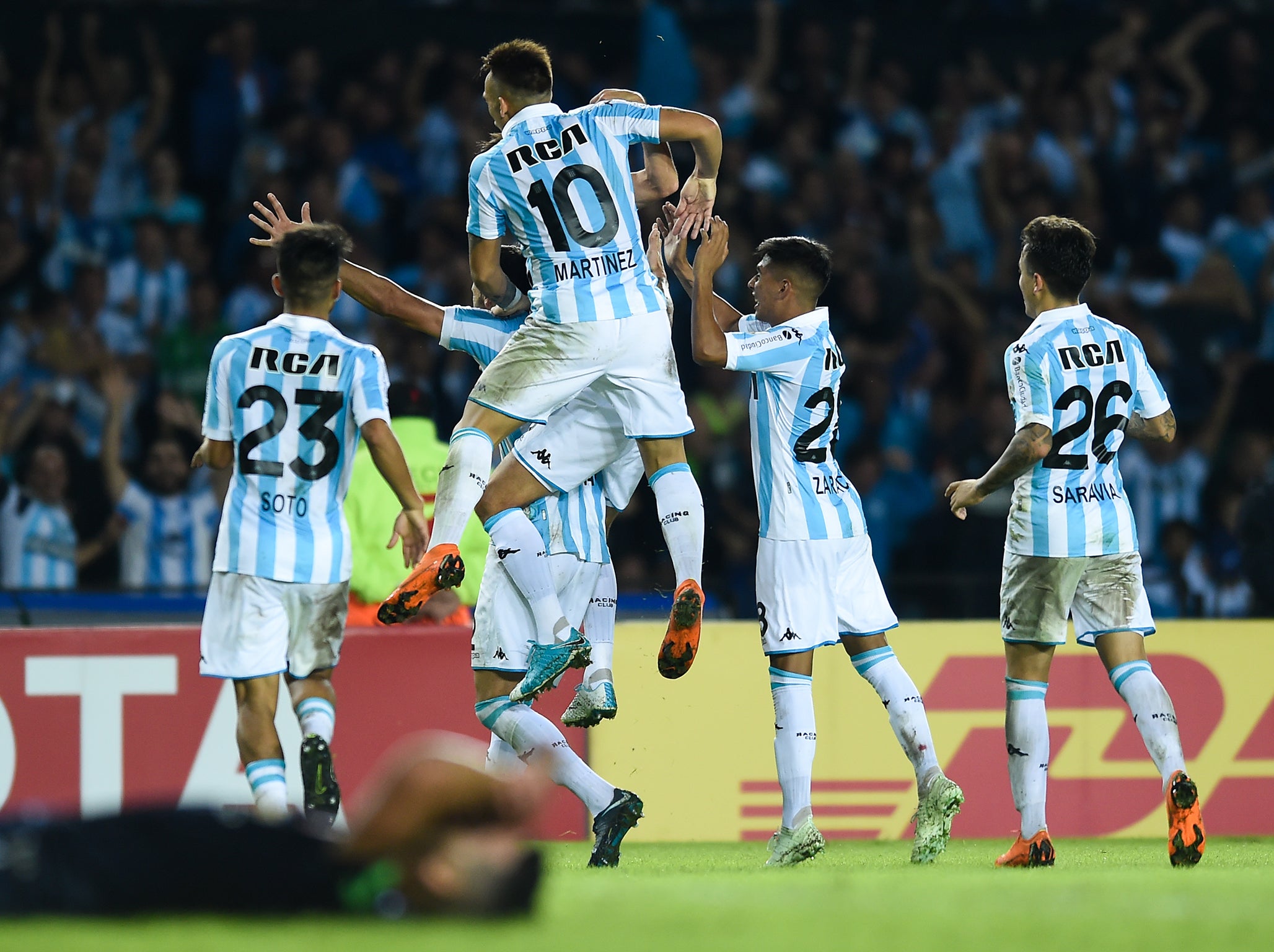
Huerta was one of the first appointments. A cultured individual – who had travelled across Europe talking to people from Borussia Dortmund, Sevilla, Barcelona and even Zinedine Zidane, as well as previously working at Argentinian newspaper Clarín – he understood immediately what Milito was trying to achieve, and how to enact that.
Sevilla were one of the examples the club turned towards. Racing wanted to become one of the first Argentine clubs to properly scour and hone what remains one of the most fertile areas for the game’s talent in the world.
This might sound simplistic, but in Argentina it remains sensational.
Another of Milito’s initial appointments was Javier Weiner, who had been working with his father, Gabriel, on a “mobile technical unit”. Essentially: a technology-based freelance scouting operation that had been contracted by Bayer Leverkusen, Udinese and many other European teams.
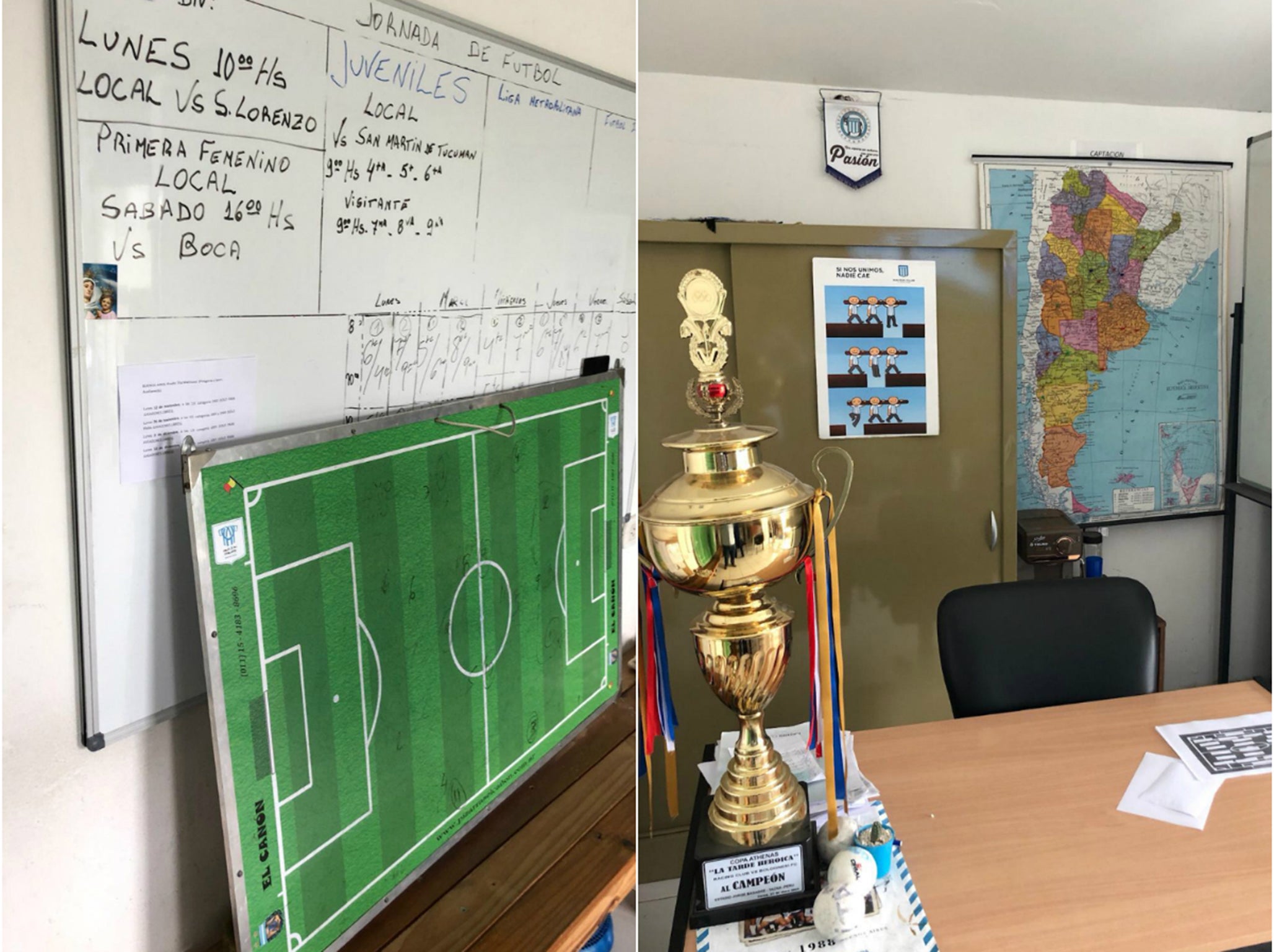
“We want to be another type of club, with harmony between president, technical director and coach,” Weiner explains. “We have to be creative. We have to have a network that means we can get players before bigger clubs, because we cannot compete with River and Boca.”
That has meant that – remarkably – Racing are often the only Argentine club that regularly sends scouts to international youth tournaments, or to South American countries like Colombia, Peru and Venezuela.
Officials from other clubs even expressed utter bemusement when it was explained to them they had eyes in Venezuela, a country they simply do not associate with football.
That has led to the current situation, where Racing have 55 boys who live at the club’s academy, and are offered the support of everything from psychology sessions to social workers to out-of-school tutoring. The approach to player development is entirely centred on individual improvement rather than results, something else entirely out of synch with Argentine football culture.
And that does not just apply to the recruitment of players. It also applies to moving them on.
There was one match when Weiner noticed “a couple of tall, blond guys in the crowd at one game”. They were scouts from FC Copenhagen, who had to buy tickets for a match because there was no one they could get in touch with to help them.”
Racing have addressed that by employing someone in that area, in another development that is so distinctive for Argentina.
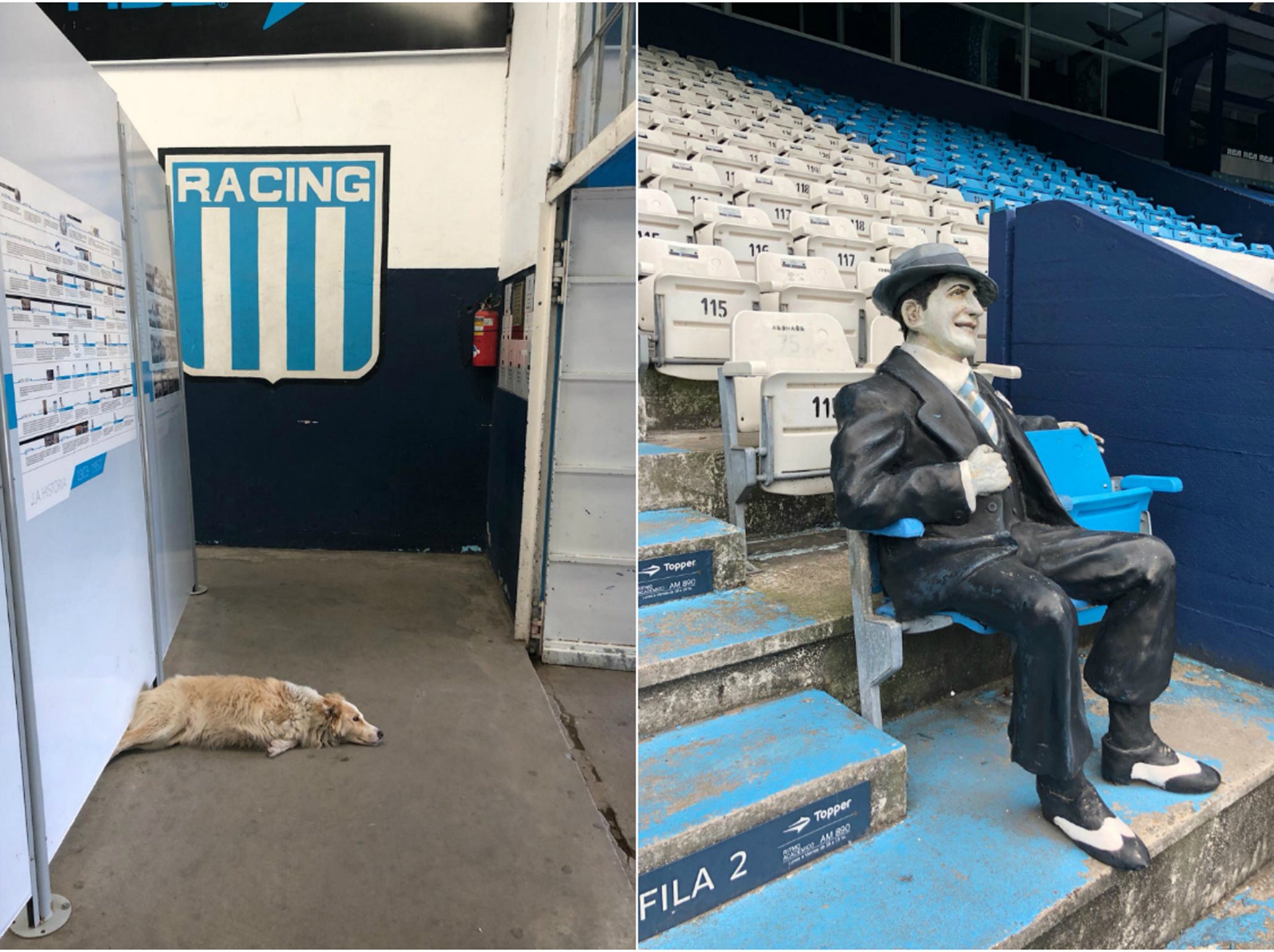
It all cuts to the core of a problem that Racing’s academy co-ordinator Miguel Gomis sums up.
“We have been fighting for years against the idea that competition makes kids grow,” he says. “It affects the formation of players, this cruel competition. We do not see the mistakes we make because no matter how badly we do things, players come through.
“Switzerland knows how to make watches. We know how to make players. How do you train talent? These are very fine lines. It is not easy to manage it.”
Racing are aiming to do it in the optimum manner, within the confines of the football culture’s economic situation. They refuse to sign players who would block opportunities for their youth graduates, because that represent money wasted.
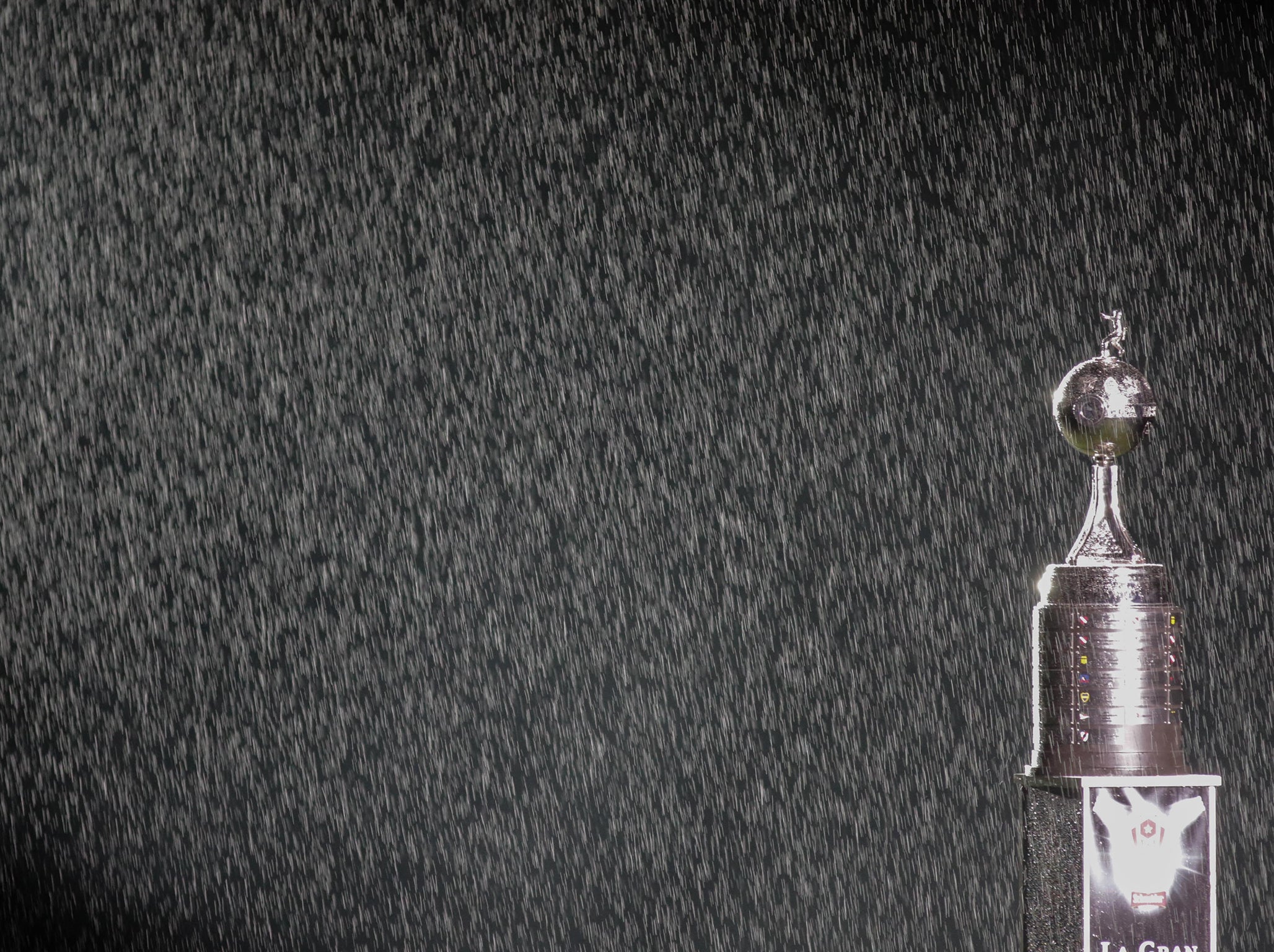
They have themselves cut through so much in Argentine football: thereby cutting a path to the top of the table.
Milito stands on top of all of this. There are two huge pictures of him in the rustic light blue Racing academy building. Everyone thinks it fitting, as Huerta explains.
“Without him, none of this happens.”
Join our commenting forum
Join thought-provoking conversations, follow other Independent readers and see their replies
Comments